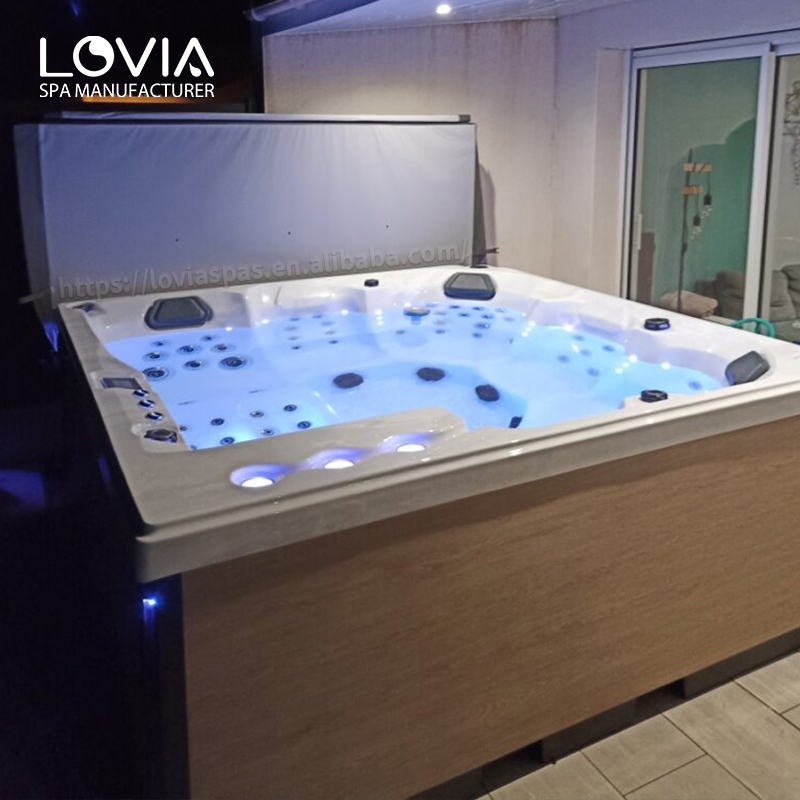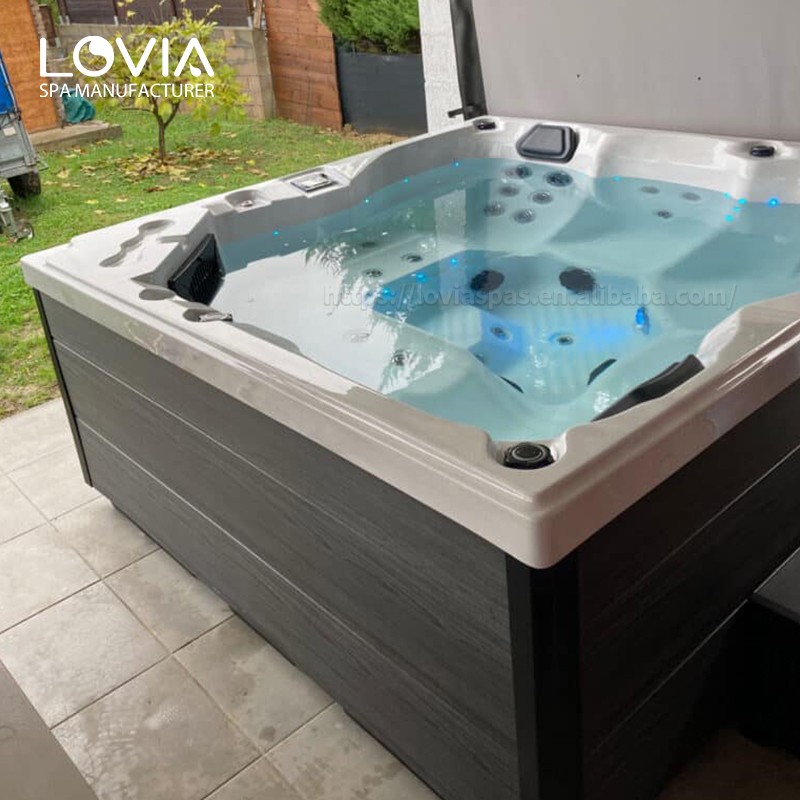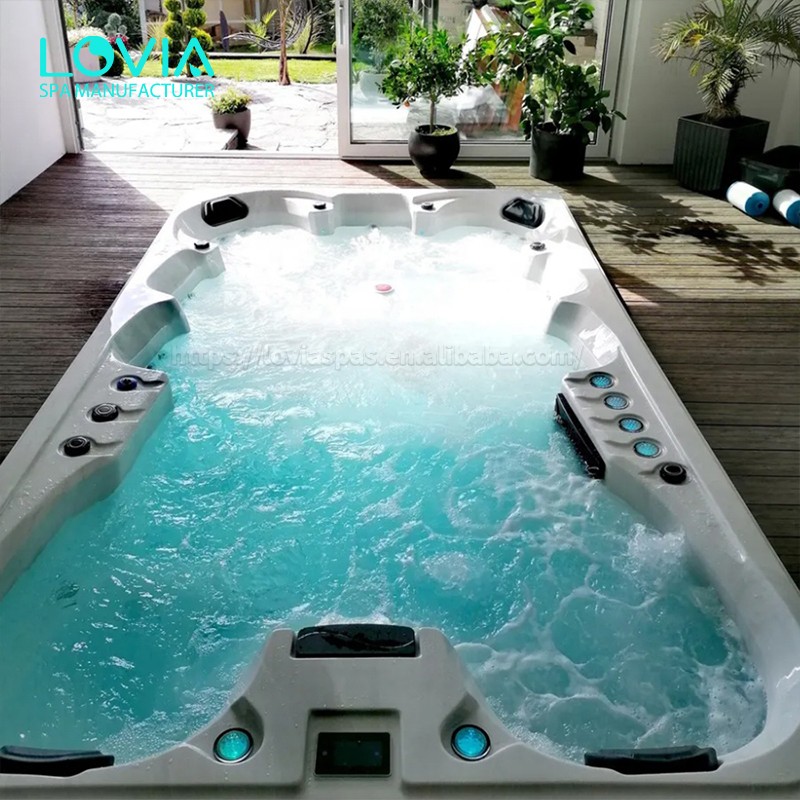
What happens if you put too much chlorine in a spa jacuzzi bathtub?
2025-06-10 15:30As a leisure facility, the spa jacuzzi bathtub is loved by many people for its soothing massage function and relaxation effect. However, despite its relaxing experience, the water quality management of the spa jacuzzi bathtub is also crucial. In particular, chlorine, a disinfectant in the water, plays an important role in ensuring the water is clean and preventing bacteria from growing.
If chlorine is used in excess, it may cause a series of adverse effects on the users, equipment and water quality of the spa jacuzzi bathtub. Therefore, understanding the consequences of excessive use of chlorine is crucial to ensure the safety and effectiveness of the spa jacuzzi bathtub.
This article will delve into the consequences of using too much chlorine in a spa jacuzzi bathtub, helping users understand the correct use of chlorine and ensuring that each use can be carried out in a safe and comfortable environment.

What is the role of chlorine in a spa jacuzzi bathtub?
1.1 The function of chlorine
Chlorine is a common disinfectant used in facilities such as swimming pools, spa bathtubs and spa jacuzzi bathtubs. It can effectively kill bacteria, viruses, algae and other microorganisms in the water, thus ensuring the cleanliness of the water. A spa jacuzzi bathtub usually needs to maintain a certain chlorine content to ensure that the water quality is not polluted during use. However, excessive use of chlorine can lead to a series of problems that affect the water quality and the health of users.
1.2 How chlorine works
Chlorine kills bacteria and other microorganisms in water through oxidation. It can destroy cell walls and make it impossible for microorganisms to survive. When there is an appropriate amount of chlorine in the water of a spa jacuzzi bathtub, it can effectively inhibit the reproduction of bacteria and reduce the accumulation of harmful substances in the water, thereby keeping the water clean and hygienic.
What are the consequences of adding excessive chlorine to a spa jacuzzi bathtub?
2.1 Impact on water quality
When the chlorine content in a spa jacuzzi bathtub is too high, the first thing that is affected is the water quality itself. Excessive chlorine content may cause the water quality to become turbid and form chloride precipitation. As the chlorine evaporates, harmful substances in the water will also be brought into the air, causing the water quality of the spa jacuzzi bathtub to lose its clarity.
Excessive chlorine can also affect the pH value of spa jacuzzi bathtub water, making it acidic or alkaline, which can lead to unstable water quality and may have adverse effects on skin and equipment. When the pH value is too low, the water will become more acidic and corrosive, which may corrode the surface and pipes of the spa jacuzzi bathtub, causing equipment aging and damage.
2.2 Impact on spa jacuzzi bathtub equipment
Chlorine is highly corrosive, and excessive chlorine can cause serious damage to metal parts in the spa jacuzzi bathtub. Metal water pumps and nozzles will accelerate corrosion under the action of excessive chlorine, which will affect the normal operation of the spa jacuzzi bathtub. In addition, chlorine may also cause degradation of plastic, rubber and other materials of the bathtub, shortening its service life.
2.3 Impact on user health
The most direct impact is the high concentration of chlorine in the air. When there is too much chlorine in the spa jacuzzi bathtub, chlorine gas will evaporate from the water surface into the air. Inhaling too much chlorine may cause a series of respiratory problems, including shortness of breath, coughing, sore throat and other symptoms. Long-term exposure to chlorine may cause airway inflammation and even worsen respiratory diseases such as asthma.
In addition, excessive chlorine can irritate the skin, especially for people with sensitive skin, which may cause dry skin, itching or redness. If the chlorine concentration is too high, the user's skin may feel uncomfortable or even have an allergic reaction after swimming or soaking in the bathtub.

Chemical reactions of excessive chlorine and their hazards
3.1 Chlorine reacts with organic matter in water
When organic matter in the spa jacuzzi bathtub (such as sweat, skin flakes, cosmetics, etc.) comes into contact with chlorine, chemical reactions will occur to produce harmful byproducts. These byproducts are called "chloramines", which produce a pungent smell and float in the air. These chloramines are not only unpleasant, but also irritate the respiratory system and increase potential harm to the human body.
3.2 Chlorine vapor pollution to the environment
Under the effect of excessive chlorine, the water in the spa jacuzzi bathtub will continuously release chlorine vapor. These chlorine vapors are not only harmful to human health, but also pollute the surrounding environment. If there are windows near the bathtub or poor ventilation, the concentration of chlorine vapor may be too high, affecting the indoor air quality. Long-term exposure to this environment may cause discomfort symptoms such as eye stinging and dry throat.

How to avoid excessive chlorine in the spa jacuzzi bathtub?
4.1 Regularly test the chlorine content
In order to ensure the health of the water quality of the spa jacuzzi bathtub, it is important to regularly test the chlorine content in the water. Most spa jacuzzi bathtubs provide chlorine testing tools, and users should adjust the chlorine content according to the recommended standards in the product manual. Generally speaking, the chlorine content of the swimming massage bathtub should be kept between 1-3 ppm (parts per million). Too high or too low will have a negative impact on the water quality and the health of users.
4.2 Correct use of chlorine
When using chlorine, chlorine should be added reasonably according to the capacity of the spa jacuzzi bathtub and the water quality requirements. If there is an excess of chlorine, the concentration of chlorine should be reduced by increasing the frequency of water changes or using a dechlorinator. In addition, avoid adding excess chlorine to the water at one time. It is best to add it in batches and stir the water flow in time to ensure that the chlorine is evenly distributed.
4.3 Adjusting the pH value of spa jacuzzi bathtub
The effect of chlorine is closely related to the pH value of water. The pH value of water should be maintained between 7.2 and 7.8. Too high or too low pH values may lead to a decrease in the disinfection effect of chlorine. When adjusting the chlorine content, the pH value should be checked at the same time and adjusted by adding a pH adjuster if necessary.
As a global leader in spa manufacturing, Guangzhou HuanTong Industrial Co., Ltd. proudly offers a wide range of outdoor spa jacuzzi bathtubs and hot tubs. With over three decades of experience, our company stands out as a trusted supplier to global wholesalers and distributors. We offer low-price bulk purchases, customized designs, and fast production capacity. Our sales team is ready to offer quotes and wholesale pricing that meets your market needs.
